The Hidden Dangers of Store-Bought Flour: Why You Should Grind Your Own
Flour is a staple in almost every household, used for making everything from bread and chapatis to cakes and cookies. Most people buy pre-packaged flour from stores without thinking twice about its quality and nutritional value. However, what many don’t realize is that store-bought flour may not be as fresh, pure, or healthy as they assume. From chemical additives to nutrient depletion, there are several hidden dangers lurking in pre-packaged flour. This article explores these risks and explains why grinding your own flour at home is the best way to ensure purity, freshness, and health benefits.
1. Nutrient Loss Due to Processing
One of the biggest disadvantages of store-bought flour is the loss of essential nutrients. The commercial milling process involves refining wheat grains to extend shelf life, but in doing so, it removes the most nutritious parts of the grain:
- Bran: Rich in fiber, which aids digestion and supports heart health.
- Germ: Contains vitamins, minerals, and healthy fats essential for overall well-being.
These components are stripped away during processing, leaving behind mainly starch with fewer nutrients. Some manufacturers attempt to “enrich” the flour by adding synthetic vitamins, but these are never as beneficial as the naturally occurring ones in whole wheat.
2. Chemical Additives and Bleaching Agents
To improve the appearance and texture of flour, commercial brands often use bleaching agents and chemical additives. Some of the common substances found in store-bought flour include:
- Benzoyl Peroxide: Used to whiten flour but may cause irritation and allergic reactions.
- Potassium Bromate: A controversial flour improver banned in many countries due to potential cancer risks.
- Preservatives: Added to extend shelf life, these chemicals may lead to digestive issues and long-term health concerns.
Grinding your own flour at home eliminates the need for these additives, ensuring you get pure and unprocessed flour.
3. Risk of Contamination
Store-bought flour is produced in bulk, stored in warehouses, and transported over long distances before reaching your kitchen. During this journey, it is susceptible to contamination from various sources:
- Pesticide Residues: Grains used in mass production are often treated with pesticides, some of which remain in the final product.
- Mold & Toxins: Long storage periods in humid conditions can lead to fungal growth, producing harmful mycotoxins.
- Insect Infestation: Commercial flour can sometimes contain traces of insects or their eggs due to improper storage.
When you grind your own flour at home using high-quality grains, you significantly reduce the chances of consuming these contaminants.
4. Lower Fiber Content in Refined Flour
Whole wheat flour contains dietary fiber, which plays a crucial role in digestion and maintaining healthy blood sugar levels. However, most commercial white flour is refined, meaning it has lost a significant amount of fiber. Low-fiber diets can contribute to:
- Digestive problems like constipation
- Increased risk of diabetes due to rapid spikes in blood sugar
- Higher cholesterol levels leading to heart disease
By grinding whole wheat at home, you retain all the fiber and natural goodness, promoting better digestion and overall health.
5. Loss of Freshness and Flavor
Freshly milled flour has a distinct aroma, flavor, and texture that store-bought flour simply cannot match. Once grains are ground, they start to oxidize, leading to nutrient degradation and loss of taste. Packaged flour, which may have been sitting on store shelves for months, lacks the natural freshness that homemade flour offers.
Grinding your own flour ensures that you use it at its peak freshness, enhancing the taste and nutritional value of your meals.
Conclusion: The Smarter Choice – HOMA Atta Chakki
Given all the hidden dangers of store-bought flour, grinding your own flour at home is the healthiest choice. It allows you to retain essential nutrients, avoid harmful additives, and enjoy fresher, tastier food. But to make home grinding easy and efficient, you need the right equipment.
HOMA Atta Chakki, India’s first IoT-enabled smart flour mill, takes home grinding to the next level. With IntelliTouch™ controls, GrindTech™ blades, and an auto-cleaning feature, HOMA ensures you get fresh, pure, and high-quality flour effortlessly. It even rewards you with HOMA Coins, which you can redeem for essential groceries, making it a smart and rewarding investment for your home.
Make the switch today and experience the benefits of freshly ground flour with HOMA Atta Chakki – because your family deserves the best!











